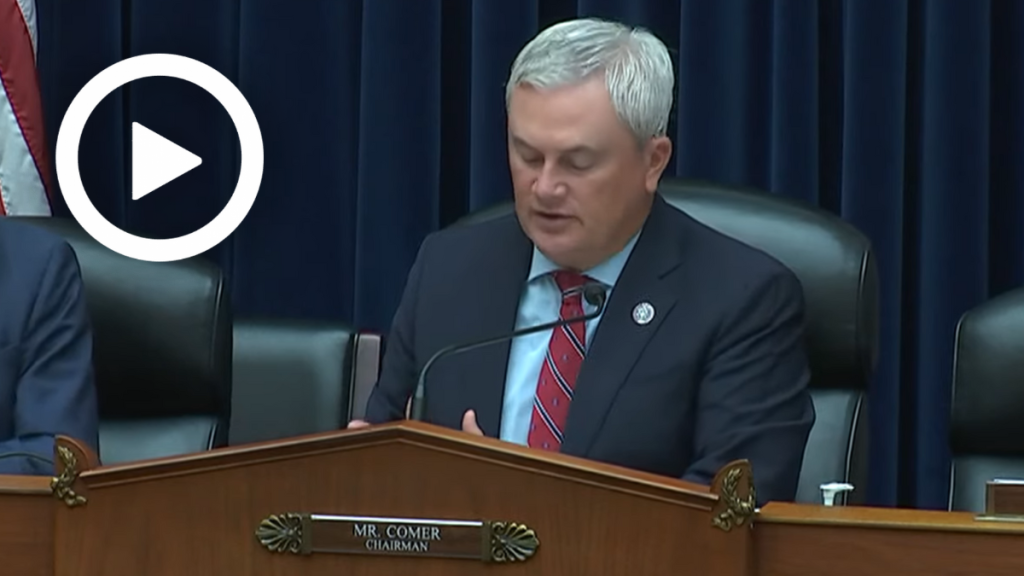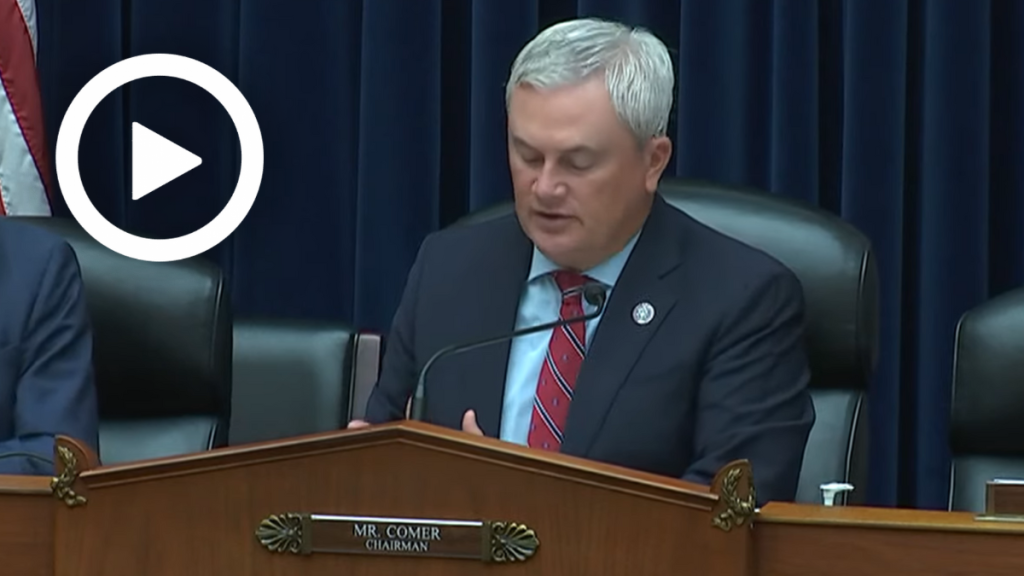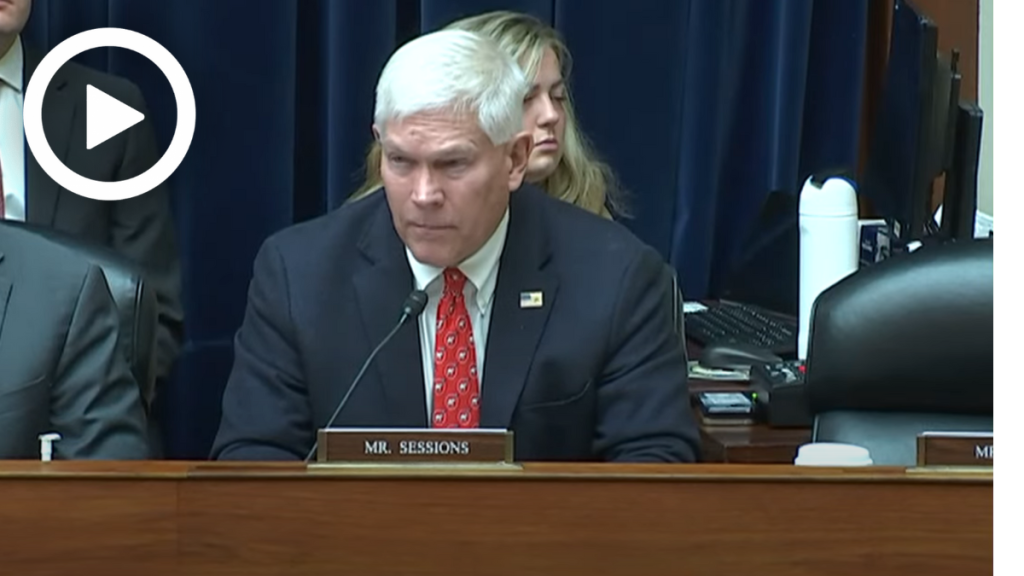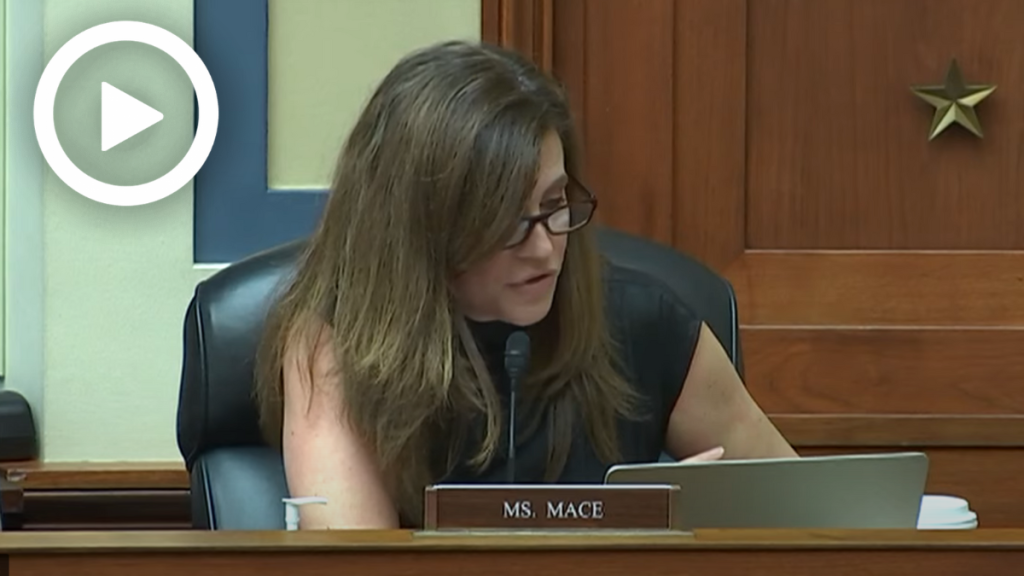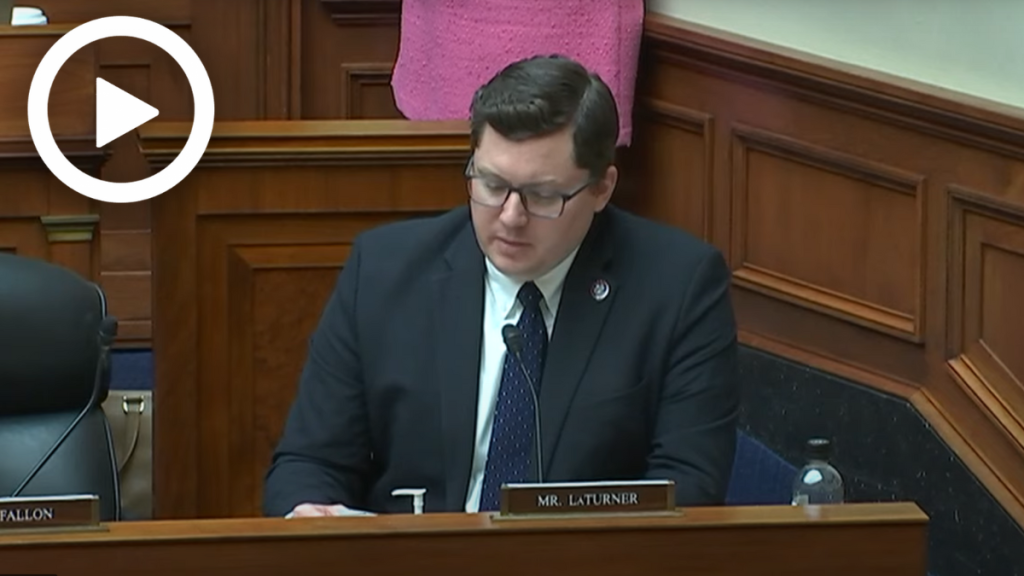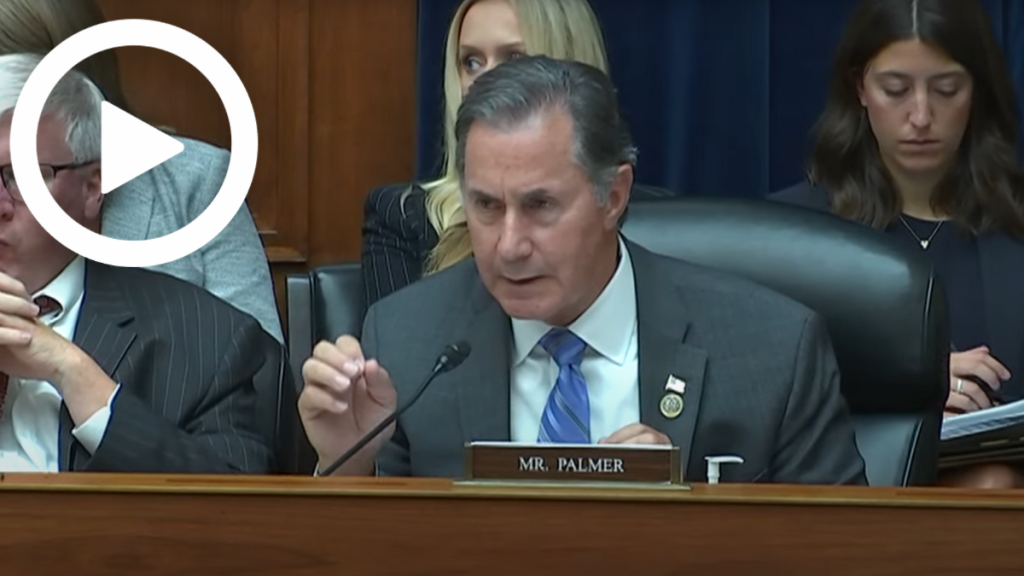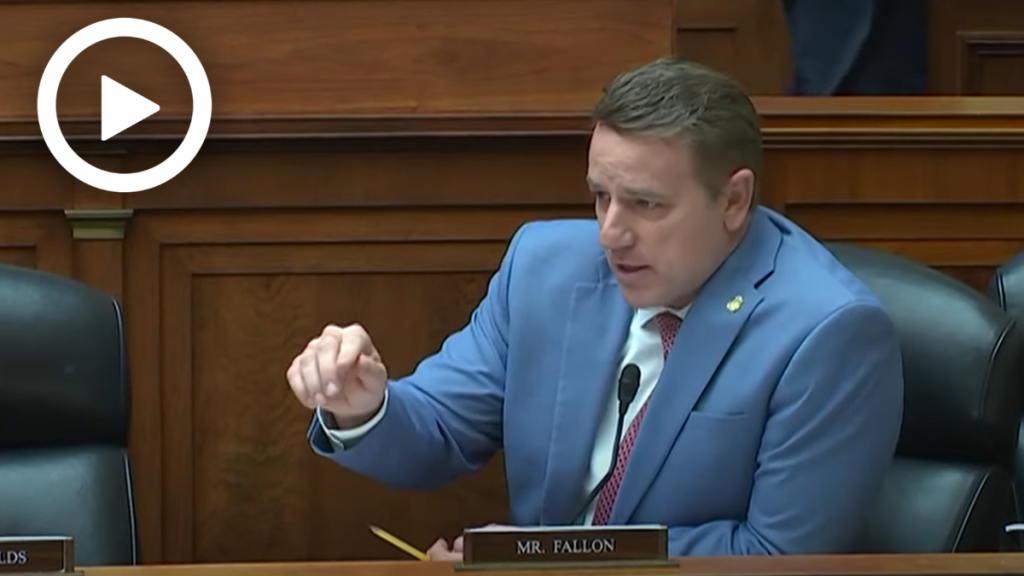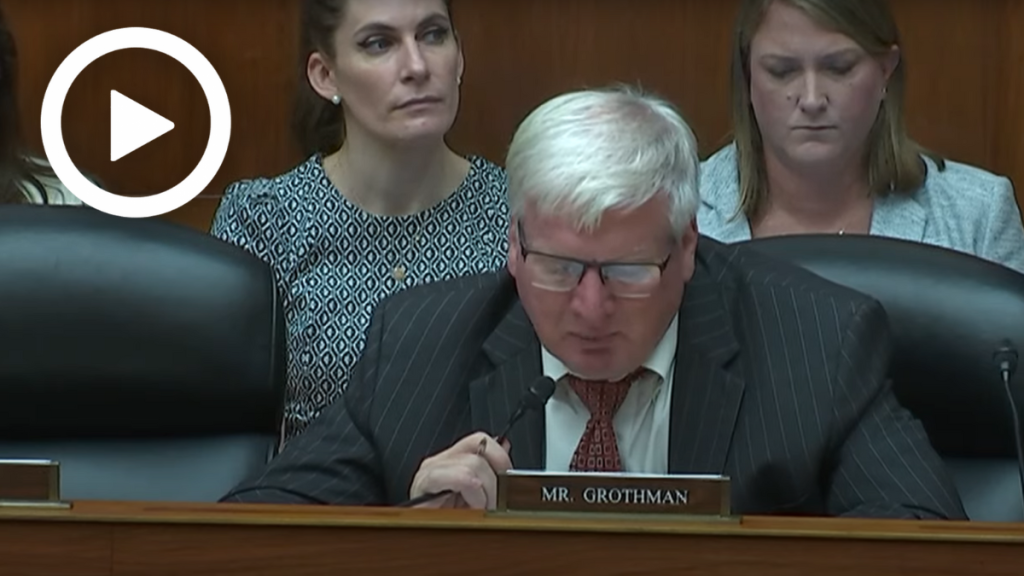Hearing Wrap Up: Pharmacy Benefit Managers Push Anticompetitive Drug Pricing Tactics to Line Their Own Pockets
Oversight Committee continues to shine a light on the PBM industry
WASHINGTON – Today, the House Committee on Oversight and Accountability held a hearing titled “The Role of Pharmacy Benefit Managers in Prescription Drug Markets Part II: Not What the Doctor Ordered.” At the hearing, members and witnesses highlighted how Pharmacy Benefit Managers (PBMs) have monopolized the pharmaceutical marketplace and push anticompetitive practices that undermine patient health and deliberately drive up the cost of prescription drugs. Both Republicans and Democrats stressed the importance of greater transparency in the PBM industry and highlighted the need for Congress to address PBMs’ harmful pricing tactics. The Oversight Committee will continue to examine PBM practices to inform legislative solutions that can greatly benefit patients and reduce drug costs.
Key Takeaways:
PBMs engage in self-benefitting, anticompetitive drug pricing tactics which increase costs for consumers and harm patient care.
- Chairman James Comer: “We know that PBMs regularly engage in spread pricing, where PBMs overcharge payers and underpay pharmacies, and pocket the extra money. We also know that drug manufacturers pay rebates to PBMs in order to be placed in a favorable tier on a formulary, which can make it difficult for competing prescriptions—often generics or biosimilars—to get on formularies. These practices have real world consequences, and impact constituents in all our districts.”
- Ms. Lori Reilly, Chief Operating Officer, Pharmaceutical Research and Manufacturers of America: “Rather than ensuring patients have rapid access to generics, biosimilars, and lower price therapies, we see PBMs denying or restricting coverage for these medicines. Instead of using the rebates they negotiate with manufacturers to lower patient cost sharing, we see PBMsrequiring patients to pay their deductibles and coinsurance based on a medicine’s undiscounted list price.”
- Mr. Craig Burton, Executive Director, Biosimilars Council: “When PBMs pursue varying rebate agreements with plan sponsors, coverage of generics is delayed and patients suffer as a result. These delays in coverage restrict patient access to lower-cost generics and expose patients to unnecessarily high cost-sharing, even though lower-cost alternatives are available.”
- Mr. Hugh Chancy, Pharmacist Owner, Chancy Drugs: “PBMs use a variety of methods to steer patients away from unaffiliated pharmacies. They create differential cost-sharing structures and arbitrary lists, such as specialty and aberrant drug lists, among other schemes, to limit independent pharmacies’ access to patients. Another harmful, anticompetitive tactic employed by PBMs is spread pricing, which refers to the difference between how much a PBM reimburses the pharmacy for a drug and the higher price they turn around and charge the plan for the same prescription. For years, community pharmacists have said that PBMs have been playing spread pricing games, contributing to higher drug costs to the detriment of patients and the taxpayer-funded programs the PBMs are supposed to serve.”
Greater transparency in the PBM industry is necessary to determine the impact PBM tactics are having on patients and restore competition in the pharmaceutical marketplace.
- Ms. Reilly: “Calls to increase PBM transparency have been a prominent theme in Congressional hearings and markups this Congress. Policies to establish transparency surrounding PBM practices and to delink PBM compensation from the price of medicines enjoy broad support from stakeholders, including Medicare beneficiary advocates. Lack of transparency and the complexity of rebates and fees can make it difficult for plan sponsors to assess whether they are fully benefiting from all price concessions that PBMs negotiate on their behalf.”
The Oversight Committee will continue to work in a bipartisan fashion to shine a light on how PBMs undermine health practices, harm community pharmacies, and prioritize their pocketbooks over patients.
- Mr. Chancy: “Community pharmacy supports common-sense legislative reforms to end PBMs’ harmful practices to pharmacy and patients alike. I applaud this committee’s bipartisan efforts to shine a light on PBMs through this investigation.”
- Mr. Burton: “Recent reporting from STAT News highlights why and how PBMs might prefer a brand drug over a lower-priced generic. To realize the full value of new generic competition, as well as savings from new biosimilar medicines, Congress must ensure rapid plan coverage of new generics and biosimilars to help improve the sustainability of generic drug markets and a stable supply of lifesaving generic medicines.
Member Highlights:
Committee Chairman James Comer (R-Ky.) emphasized that three large PBMs collectively control approximately 80 percent of the health market and engage in self-benefitting practices that boost their bottom line without a benefit to patients.
Chairman Comer: “PBMs started out as beneficial additions to the healthcare system because they were competing with each other to provide clarity to pharmacies, payers, and patients about drug costs. But that environment of competition and transparency is no longer true today. Instead of fierce competition, now just three PBMs control 80 percent of the market. And each of the three major PBMs—CVS Caremark, Express Scripts, and Optum Rx—is owned by a major health insurer and owns, or is owned, by a pharmacy. This means that when PBMs negotiate with a pharmacy or a health insurer, they are either negotiating with themselves or one of their direct competitors. This can create incentives to do things that have negative impacts on patients. That is why the Committee’s examination of PBMs is a priority this Congress.”
Chairman Comer also pointed out that PBMs are driving up the cost of specific drugs patients rely on. He concluded that anticompetitive tactics by PBMs is an issue Congress can combat in a bipartisan manner.
Chairman Comer: “Both Republicans and Democrats on this Committee are going to work together to come up with a meaningful solution to this issue… We are in close communication with the House Energy and Commerce Committee, and we will work to reform PBMs, investigate the issues, and work out the problems. No one ever envisioned PBMs being where they are today. We need to have robust debate and continue to have a dialogue because healthcare is one of the biggest problems in America.”
Rep. Pete Sessions (R-Texas) highlighted serious concerns over anticompetitive tactics pushed by the PBM industry and noted that three PBMs controlling 80% of the pharmaceutical market is harmful to patients.
Rep. Sessions: “We are not new to this issue. I believe that these PBMs, the largest ones that control 80% of the marketplace, can use their size as an anticompetitive behavior against the market.”
Ms. Reilly: “I would agree with you. There is significant evidence from the OIG, FTC, GAO of a number of different practices that PBMs utilize that make it harder for companies to reduce the list price of their medicines… The Wall Street Journal noted just this past week that they often overcharge. So I believe there is a pattern of behavior that has been well documented that demonstrates the large challenges that exist with PBMs that is not to the benefit of patients but to the detriment.”
Rep. Sessions: “I believe PBMs use their market advantage to hold others out of the marketplace. I intend to be a part of trying to bring some sanity to this and that would be through transparency.”
Rep. Nancy Mace (R-S.C.) pointed out how PBMs consistently exclude generic, low-cost drugs from covered prescriptions, prioritize high-cost drugs, and use pricing tactics that harm patient care.
Rep. Mace: “People generally assume drugs becoming generic results in a price decrease. Do PBMs often exclude low priced generics from the list of covered drugs?”
Ms. Reilly: “Yes.”
Rep. Mace: “Do PBMs often do this in favor of high-cost branded drugs effectively eliminating the benefit?”
Ms. Reilly: “Yes.”
Rep. Mace: “Do you believe they do this to cash in on drug rebates at the expense of patients?”
Ms. Reilly: “Yes.”
Rep. LaTurner (R-Kan.) highlighted how PBMs engage in a tactic known as spread pricing. He stressed the importance of increasing transparency through legislative reform and shining a light on these anticompetitive practices by PBMs.
Rep. LaTurner: “We have seen examples of PBMs engaging in spread pricing. Where the PBM charges more than what they reimburse the pharmacy and then pocket the difference. In my home of Kansas, accusations of this practice were recently settled for $26.7 million dollars… Do you believe that additional transparency in the price setting of drugs important?”
Mr. JC Scott, CEO, Pharmaceutical Care Management Association: “Yes transparency can be helpful.”
Rep. Gary Palmer (R-Ala.) noted that PBM pricing tactics, such as rebates, are not prioritizing patients, but rather the bottom lines of the largest PBMs.
Rep. Palmer: “So, what you are saying is rebates have a negative impact on patients?”
Mr. Burton: “Yes sir.”
Rep. Palmer: “So what you are saying to the Committee is that this price setting could impact the availability of certain generic drugs… This is a confusing game that is being played. What I don’t want to get lost in all this is that the patient is not the number one concern here.”
Mr. Burton: “I think that’s right… There seems to be an assumption that a general brand drug will just stay on the market. That isn’t the case.”
Rep. Pat Fallon (R-Texas) highlighted how PBMs are impacting rural healthcare and their access to affordable drugs. He noted that there are now fewer pharmacy options, and the system is allowing PBMs to maximize profits.
Rep. Fallon: “One of the concerns I have is accessibility of healthcare in rural America. I am a strong proponent of the free market. But when you have three PBMs controlling 80% of the drug market that is no longer a free market… there are now fewer pharmacies in my District. Medium and small ones are being bought up by larger ones. The big three are each integrated with an insurance company. One tool we are also seeing PBMs use to manipulate the market is copay accumulators. This is why we have seen 20 states ban copay accumulators.”
Rep. Glenn Grothman (R-Wis.) pointed out that Americans are deeply concerned about the costs of insulin and sought clarification on how PBMs are currently impacting the prices patients are being forced to pay.
Rep. Grothman: “Insulin has been a growing concern for Americans. How have PBM practices such as rebate negotiations impact the affordability of insulin for patients with diabetes?”
Ms. Reilly: “The net price of insulin has actually decreased… But most patients haven’t felt that again because PBMs insist on charging patients a full list price of the medicine and not the negotiated rate. The typical insulin has a rebate of about 84%, which is 84% lower than what patients are being asked to pay. The PBMs have not had an interest in putting lower priced insulin on the market.”
READ MORE:
Comer: Pharmacy Benefit Managers Deploy Drug Pricing Tactics to Line Their Own Pockets
Comer Releases Report on PBMs’ Tactics Leading to Soaring Prescription Drug Prices
CLICK HERE to watch the hearing.
